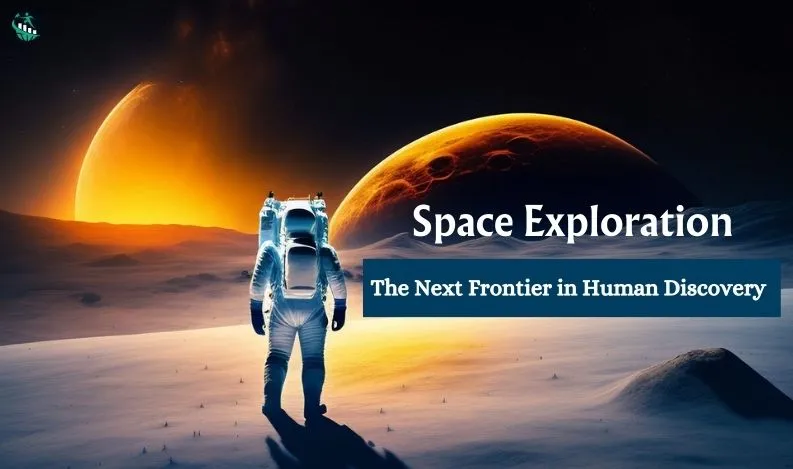
Space Exploration: The Next Frontier in Human Discovery
Humanity’s Leap into the Cosmos: The relentless human urge to explore and push beyond known boundaries has propelled us from the earliest days of navigation to the cosmic voyages of today. Space, the final frontier, stands not just as a realm of discovery but as a testament to our technological and intellectual prowess. The launch of Sputnik 1 in 1957 shattered the celestial ceiling, turning the science fiction dreams of generations into tangible reality. The Apollo 11 moon landing in 1969, an unparalleled feat, symbolized not just a victory in the space race but a giant leap for mankind, embodying our capacity to reach for the stars.
The Catalysts of Space Exploration: The motivations behind space exploration are as vast as the cosmos. Initially fueled by Cold War competition, the desire to explore space has evolved into a multifaceted endeavor driven by scientific curiosity, technological advancement, and the intrinsic human need to explore. Today, international collaborations like the International Space Station (ISS) exemplify global unity in the pursuit of knowledge, while private entities like SpaceX and Blue Origin redefine the possibilities of space travel and habitation. This era of space exploration is marked by a shared vision to extend humanity's presence beyond Earth, leveraging the unique conditions of space to address challenges on our home planet and to secure our species' future.
Scientific Discovery and Technological Innovation: The journey into space is a powerful catalyst for scientific discovery and technological innovation. Each mission unravels mysteries of the cosmos, from the formation of stars and galaxies to the search for the elusive dark matter. The technology developed for these missions, in turn, fuels advancements on Earth. Satellite technology revolutionizes communication, navigation, and disaster management. Materials engineered for spacecraft enhance safety and efficiency in industries worldwide. Moreover, space exploration pushes the boundaries of technology, leading to the development of new propulsion systems, life support, and sustainable habitats, which are crucial for the future of deep space exploration.
The Quest for Life Beyond Earth: One of the most profound questions driving space exploration is whether we are alone in the universe. The search for extraterrestrial life is not just about finding other beings; it's about understanding the origins of life, the conditions that support it, and its potential ubiquity in the universe. Mars, with its evidence of ancient rivers and lakes, stands as a prime candidate in this search, hosting several missions aimed at uncovering past microbial life. Beyond our solar system, the study of exoplanets—planets orbiting other stars—has exploded, with missions like Kepler and TESS identifying worlds that may harbor life. The icy moons of Jupiter and Saturn, with their subsurface oceans, offer new frontiers in the search for life, challenging our perceptions of where and how life can exist.
The Future of Human Space Exploration: Humanity's future in space envisions not only continued robotic exploration but also the permanent human settlement of other worlds. The Artemis program aims to return humans to the moon, establishing a sustainable presence as a stepping stone to Mars and beyond. The dream of Mars colonization, once the realm of fiction, is now a tangible goal, with missions planned for the coming decades aiming to establish human habitats. These endeavors require innovations in life support, space agriculture, and energy production, as well as addressing psychological and sociological aspects of long-term space habitation.
Overcoming the Challenges: The path to interstellar exploration is fraught with formidable challenges. Space travel presents extreme environmental and health risks, from cosmic radiation to the psychological impacts of isolation. Ethical and practical challenges in utilizing space resources, protecting planetary ecosystems, and ensuring the peaceful use of outer space must be navigated with care. International cooperation and the development of comprehensive space laws and agreements are crucial to addressing these challenges, ensuring space remains a realm of peaceful exploration and shared human heritage.
Conclusion: A Unified Quest for the Stars Space exploration transcends terrestrial divisions, embodying a collective endeavor that unites humanity with a common purpose. It challenges us to think beyond our immediate concerns, to innovate, and to cooperate across borders. As we embark on this grand adventure, we do so with the hopes and dreams of all humankind, driven by the desire to explore, to understand, and ultimately, to secure our future among the stars. The cosmos beckons with the promise of discovery, and in our quest for the stars, we find a deeper understanding of ourselves and our place in the universe.
Also Read:-







Recent Comments: